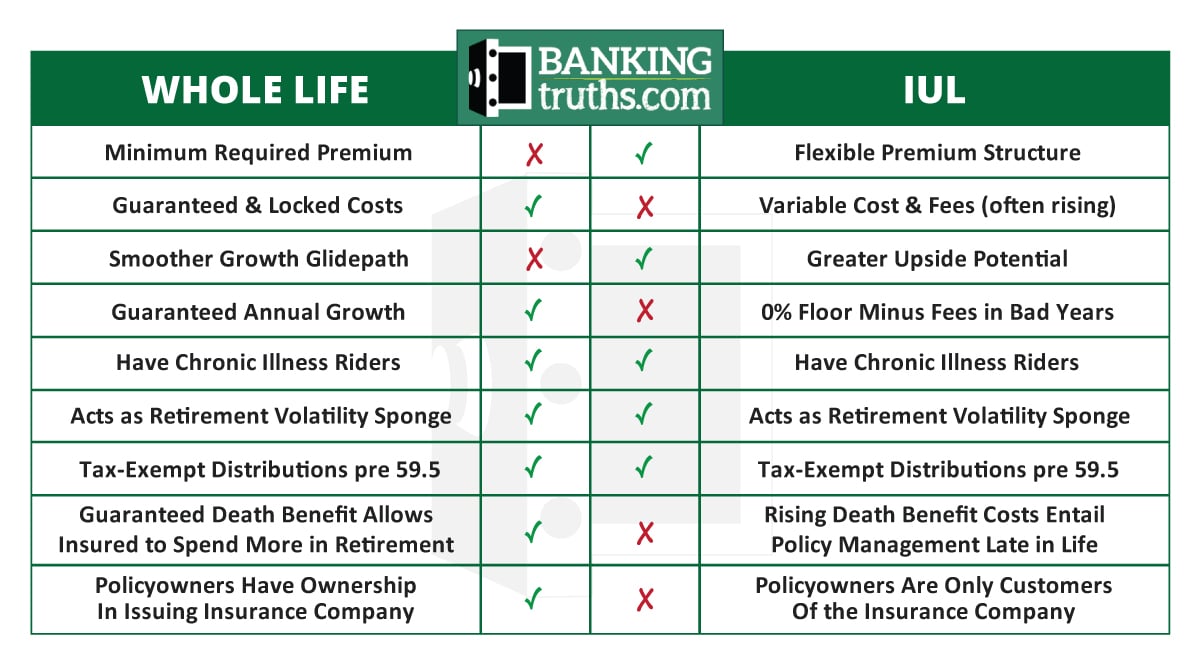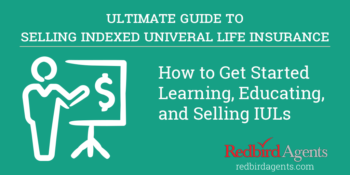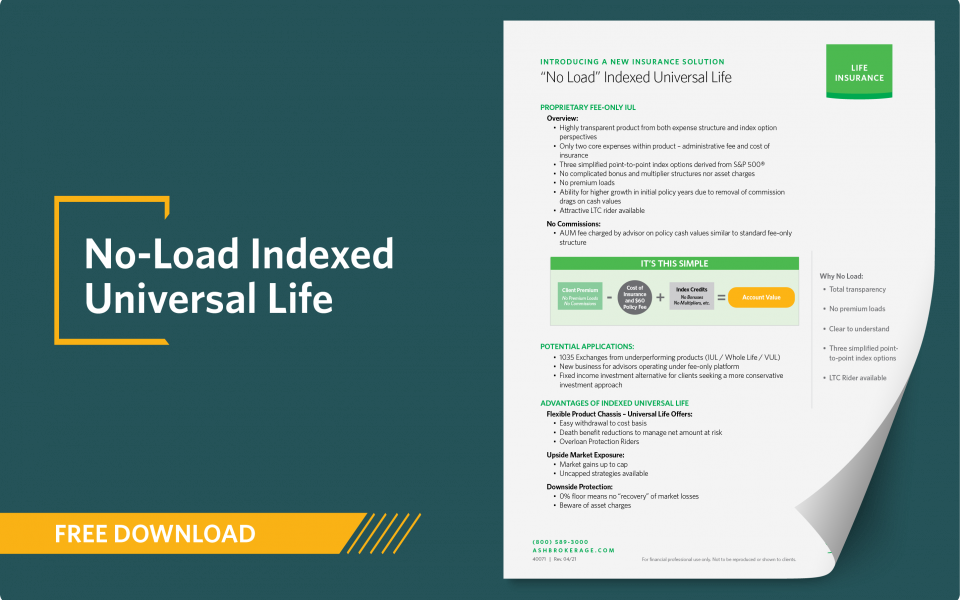All Categories
Featured
Table of Contents
Do they compare the IUL to something like the Lead Overall Supply Market Fund Admiral Shares with no lots, an expenditure proportion (ER) of 5 basis factors, a turnover proportion of 4.3%, and an extraordinary tax-efficient record of distributions? No, they compare it to some dreadful actively taken care of fund with an 8% lots, a 2% EMERGENCY ROOM, an 80% turnover ratio, and a terrible record of temporary funding gain circulations.
Mutual funds usually make annual taxed circulations to fund owners, also when the worth of their fund has actually decreased in value. Common funds not only call for income coverage (and the resulting yearly tax) when the mutual fund is going up in value, yet can also enforce revenue tax obligations in a year when the fund has actually dropped in value.
You can tax-manage the fund, harvesting losses and gains in order to minimize taxed circulations to the investors, but that isn't somehow going to alter the reported return of the fund. The ownership of shared funds may require the common fund owner to pay estimated taxes (indexed death benefit).

IULs are very easy to place to ensure that, at the owner's death, the recipient is not subject to either income or inheritance tax. The same tax obligation reduction methods do not work almost too with shared funds. There are numerous, usually expensive, tax obligation traps related to the moment trading of mutual fund shares, traps that do not apply to indexed life insurance policy.
Possibilities aren't very high that you're going to be subject to the AMT because of your mutual fund distributions if you aren't without them. The remainder of this one is half-truths at finest. While it is true that there is no earnings tax due to your beneficiaries when they inherit the profits of your IUL plan, it is likewise true that there is no revenue tax obligation due to your beneficiaries when they inherit a common fund in a taxable account from you.
Equity Indexed Universal Life Insurance Contracts
The government estate tax obligation exception limit is over $10 Million for a pair, and growing annually with rising cost of living. It's a non-issue for the substantial majority of medical professionals, a lot less the rest of America. There are much better means to prevent estate tax obligation problems than getting financial investments with reduced returns. Common funds may create revenue taxes of Social Safety and security advantages.

The development within the IUL is tax-deferred and might be taken as free of tax earnings through lendings. The plan proprietor (vs. the common fund manager) is in control of his/her reportable income, hence enabling them to minimize or even remove the taxes of their Social Protection advantages. This set is terrific.
Here's one more marginal problem. It holds true if you buy a common fund for say $10 per share prior to the circulation date, and it disperses a $0.50 circulation, you are then going to owe taxes (probably 7-10 cents per share) in spite of the truth that you haven't yet had any gains.
In the end, it's actually concerning the after-tax return, not just how much you pay in taxes. You are going to pay even more in tax obligations by utilizing a taxed account than if you buy life insurance policy. You're additionally most likely going to have more cash after paying those taxes. The record-keeping demands for owning shared funds are substantially much more intricate.
With an IUL, one's documents are maintained by the insurance business, duplicates of annual declarations are mailed to the owner, and distributions (if any kind of) are totaled and reported at year end. This one is additionally sort of silly. Obviously you need to keep your tax obligation records in case of an audit.
What Is Better Term Or Universal Life Insurance
All you need to do is push the paper into your tax folder when it turns up in the mail. Barely a factor to acquire life insurance policy. It resembles this person has actually never bought a taxed account or something. Common funds are typically component of a decedent's probated estate.
In enhancement, they go through the hold-ups and expenses of probate. The proceeds of the IUL policy, on the various other hand, is constantly a non-probate circulation that passes outside of probate straight to one's named beneficiaries, and is therefore not subject to one's posthumous lenders, unwanted public disclosure, or similar delays and costs.
Medicaid disqualification and lifetime earnings. An IUL can offer their owners with a stream of earnings for their entire lifetime, no matter of just how long they live.

This is valuable when arranging one's events, and transforming assets to earnings prior to a retirement home confinement. Common funds can not be converted in a comparable manner, and are generally thought about countable Medicaid assets. This is another stupid one promoting that bad individuals (you recognize, the ones that require Medicaid, a federal government program for the bad, to spend for their retirement home) ought to make use of IUL as opposed to shared funds.
Indexed Whole Life Insurance Policy
And life insurance policy looks terrible when compared fairly versus a retirement account. Second, people that have cash to get IUL above and beyond their retirement accounts are going to need to be awful at managing money in order to ever get Medicaid to spend for their assisted living home costs.
Chronic and terminal disease cyclist. All policies will permit a proprietor's easy accessibility to cash from their policy, usually waiving any type of surrender fines when such people experience a severe disease, need at-home care, or end up being confined to an assisted living home. Shared funds do not offer a comparable waiver when contingent deferred sales costs still use to a shared fund account whose owner needs to sell some shares to fund the expenses of such a remain.
Index Universal Life Insurance Policy
You obtain to pay more for that benefit (motorcyclist) with an insurance coverage policy. Indexed universal life insurance coverage offers death advantages to the beneficiaries of the IUL proprietors, and neither the proprietor nor the recipient can ever lose cash due to a down market.
Currently, ask on your own, do you actually require or desire a death benefit? I certainly do not require one after I reach economic self-reliance. Do I want one? I suppose if it were low-cost enough. Naturally, it isn't low-cost. Usually, a purchaser of life insurance policy spends for truth price of the life insurance coverage benefit, plus the expenses of the policy, plus the revenues of the insurance company.
Accumulation Value Life Insurance
I'm not completely sure why Mr. Morais included the entire "you can't lose money" once again here as it was covered fairly well in # 1. He simply intended to repeat the very best marketing factor for these things I mean. Once more, you don't lose nominal bucks, however you can lose genuine dollars, along with face serious opportunity cost because of reduced returns.

An indexed universal life insurance plan owner may trade their policy for a totally various policy without causing revenue tax obligations. A mutual fund owner can stagnate funds from one shared fund company to one more without selling his shares at the previous (hence causing a taxed occasion), and buying brand-new shares at the last, commonly based on sales charges at both.
While it holds true that you can exchange one insurance plan for another, the factor that people do this is that the very first one is such a dreadful plan that also after purchasing a new one and undergoing the early, negative return years, you'll still appear in advance. If they were offered the ideal plan the very first time, they should not have any type of desire to ever before exchange it and experience the early, negative return years again.
Latest Posts
Best Universal Life
Index Universal Life Vs Roth Ira
Universal Life Insurance Tax Advantages